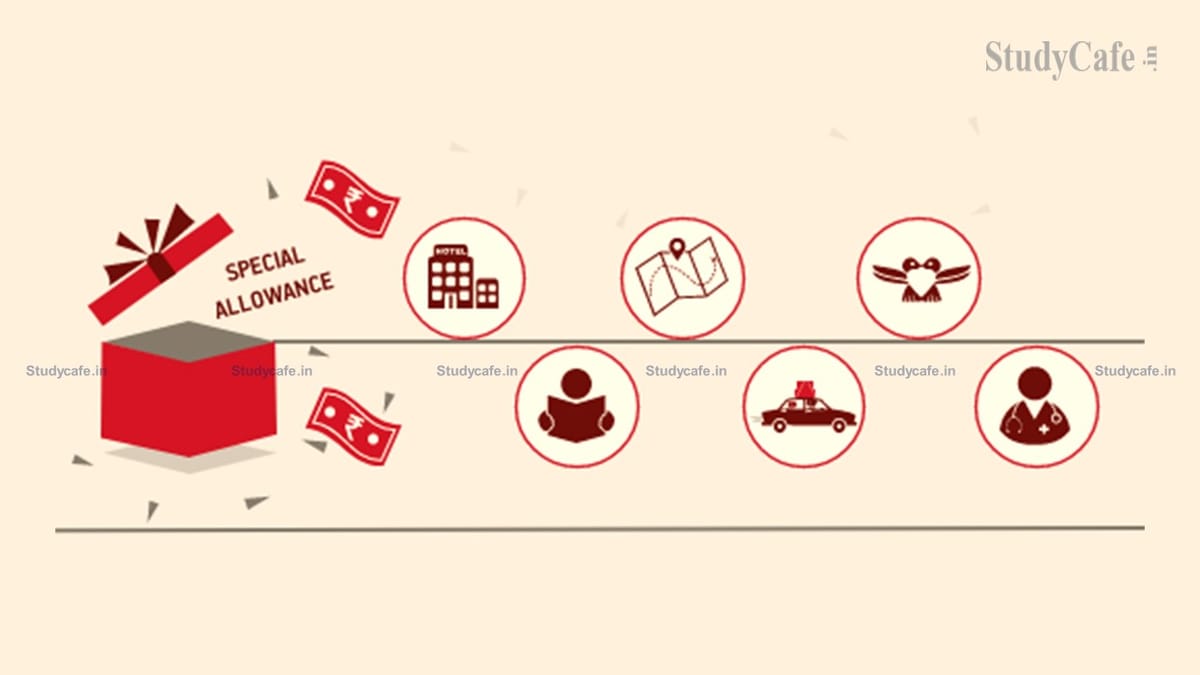Everything You Need to Know About Special Allowance
Deepshikha | Mar 3, 2022 |

Everything You Need to Know About Special Allowance
We frequently encounter allowances such as transportation, conveyance, uniform allowance, and so on. These are additional benefits that an employer provides to its employees regularly. The taxability of these allowances is subject to various rules and conditions. We’ve gone over the different types, how they’re taxed, and how to claim exemptions in this article.
It is a set sum of money offered by an employer to its employees. Employers pay it in addition to the basic salary and the dearness allowance. The goal is to fulfil the individual needs of the employees. These allowances are taxed because they constitute part of the pay. It is either exempt or taxable, depending on the type of allowance.
Employees are given a specific allowance to help them meet their financial obligations. These costs are incurred while they are executing the duties of an office or a profit-making job. The quantity fluctuates depending on the needs of each company. It is included in the fixed pay. The details of the allowance can be found in the offer letter or the monthly payslip. It is taxable in the hands of the employee because it is included in the salary.
Section 10(14) of the Income Tax Act of 1961 exempts special allowances from taxation.
The sorts of special allowances can be separated into two categories. To begin, a few allowances are completely tax-free. Others are either partially or completely exempt. The following conditions, however, must be met:
The special allowance is usually less than the basic income. Furthermore, after awarding fixed pay and variable pay in the form of monthly and performance bonuses, a special allowance is usually the remaining of the CTC. As a result, your special allowance may be greater than your base wage. There would, however, be an extremely unusual or specific scenario. Furthermore, the Income Tax Act makes no distinction between a basic salary that is lower or higher than a special allowance.
The central government pays its employees a dearness allowance. A dearness allowance is only given to personnel in the public sector. Furthermore, the consumer price index is used to calculate the dearness allowance. The dearness allowance is subject to review by the Pay Commission. A special allowance, on the other hand, can be paid by both public and private sector employees. The purpose of a special allowance is to allow an employee to cover expenses that are entirely, necessarily, and exclusively incurred in the performance of tasks in a profit-making office or job. At the slab rate, dearness allowance is entirely taxed. When it comes to special allowances, they are either entirely taxable or partially taxable.
The benefits are either wholly taxed, partially taxable, or completely taxable. Dearness allowance, entertainment allowance, overtime allowance, city compensatory allowance, and lunch allowance are all completely taxable allowances. Interim, project, cash, warden, servant, and non-practicing allowances are also included.
Allowances, on the other hand, are benefits provided for specific objectives. These stipends are included in the overall compensation. These allowances, however, are not perks. Allowances and perquisites have different tax implications.
In case of any Doubt regarding Membership you can mail us at [email protected]
Join Studycafe's WhatsApp Group or Telegram Channel for Latest Updates on Government Job, Sarkari Naukri, Private Jobs, Income Tax, GST, Companies Act, Judgements and CA, CS, ICWA, and MUCH MORE!"